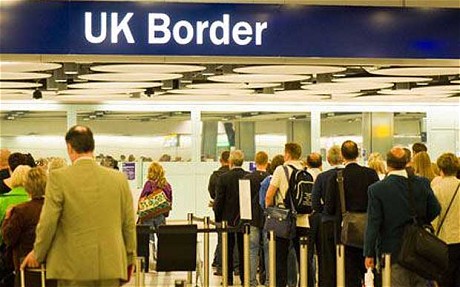
Consider the following excerpt, from an article which appears in the Financial Times, in June 2020:
The UK’s determination to preserve its independence creates an additional risk hanging over the economy. The country is not a member of the EU, but depends hugely on access to EU markets. This year it must renegotiate its relationship with its big neighbour.
After a referendum vote in favour of tougher immigration controls, UK politicians must in the next 12 months implement curbs on EU migrants. The difficulty they face is squaring that with the EU principle of the free movement of people. The UK’s trading relationship with the EU is based on a web of bilateral contracts. In a worst-case scenario, those contracts could be terminated.
Failure to secure future access to EU markets and recruit skilled labour would pose a threat at least as great as a soaring currency. The uncertainty already worries UK business leaders.
Their assumption is that a pragmatic solution will be found; both sides would have much to lose and the EU has bigger problems to resolve without picking on the UK. But symbolically, the Prime Minister will spend the Brexit anniversary on Friday in Brussels meeting the European Commission president. Reaching a deal with the EU, a government spokesman says, “is probably the biggest challenge facing the UK in 2020”.
Is this complete fiction? My argument is that it is not, and the above excerpt is in fact taken from a piece by Ralph Atkins, in the FT of 14 January. Except that Atkins talks about Switzerland, today – the changes I have made are limited to substituting references to Switzerland with the UK…
Indeed, i is becoming increasingly clear that Brexit, if it happens, is unlikely to result in a severing of all ties between the UK and the EU. Two pieces published this week, by the EU Council’s former lawyer, Jean-Claude Piris in the FT, and by Jonathan Portes for The UK in a Changing Europe, draw attention to what is likely to happen in the event of a Brexit vote. Let me add my own voice to these analyses, as they are critical for the referendum vote.
It is now crystal clear that immigration is among the major concerns which may determine how votes go in the Brexit referendum. Voters may think that Brexit will mean that future UK governments will be able to limit immigration from the EU, in much the same way as they are able to limit non-EU immigration today. A return of full sovereignty over the UK’s external borders. However, they are likely to wake up in a very different world, with a big Brexit hangover. Why is that?
A Brexit vote means that the UK government needs to negotiate its withdrawal from the EU – see Art 50 of the Treaty on European Union. This is a legal requirement, binding on the UK, and it is of course a necessity of life, too, because withdrawal from the EU is a most complex kind of divorce, with a lot of joint assets and a thick web of legal commitments. The other EU leaders (the European Council) will give guidelines to the EU Commission, which will need to negotiate with the UK on the Brexit arrangements. There is a lot at stake here, both for the UK and for the EU. Although the contents and outcomes of this negotiation are in the realm of conjecture, there are clear forces, present today, which are likely to drive this negotiation. It seems highly implausible that the UK government would not want to maintain a high level of access to the EU internal market. It would definitely be under pressure, from the side of business, to minimise the Brexit disruption by maintaining market access as much as possible. But the EU will, in return, make demands. And it has always been part of the EU’s ethos that the internal market is about more than trade in goods and services: it includes free movement of persons. When the internal market was extended to the EFTA countries, in the early 1990s, through the EEA Agreement, free movement of persons was fully included. When Switzerland rejected the EEA, it subsequently requested a series of agreements on access to the internal market, but again the EU insisted that there be an agreement on free movement of persons. The above excerpt, in its original wording, concerns the issues Switzerland currently faces as a result of its own anti-immigration referendum.
But in the UK, too, there will be forces advocating the continuation of free movement after a Brexit referendum: businesses, universities, perhaps even the NHS; and not to forget UK citizens living in other EU countries.
This last constituency highlights another dimension of the Brexit negotiation. The EU Commission is likely to insist that EU citizens currently living in the UK may continue to do so, and will not be discriminated against – in return of course for protecting the rights of these UK citizens living in Europe. If this were accepted, the status quo would linger on, making it even harder to move to an entirely different regime for new entrants (and leavers): why should they be treated differently?
Of course all this might be different if the main political parties made firm promises that a Brexit vote will mean a return to full immigration control, also for those from the EU. But neither the Conservatives nor Labour make such a promise. Those voters who choose Brexit with a view to the UK regaining such control are at great risk of being completely desillusioned with the ultimate outcome. This needs to be emphasised
